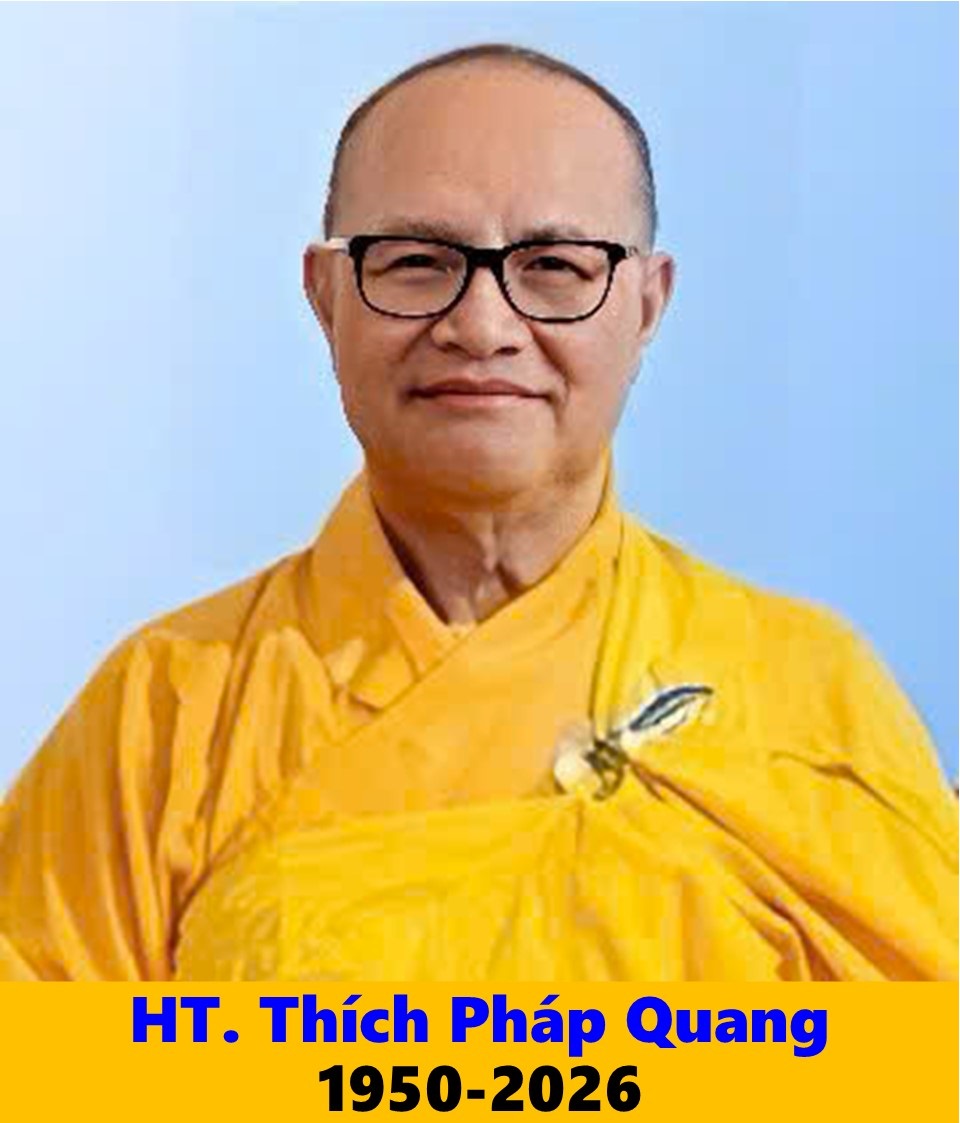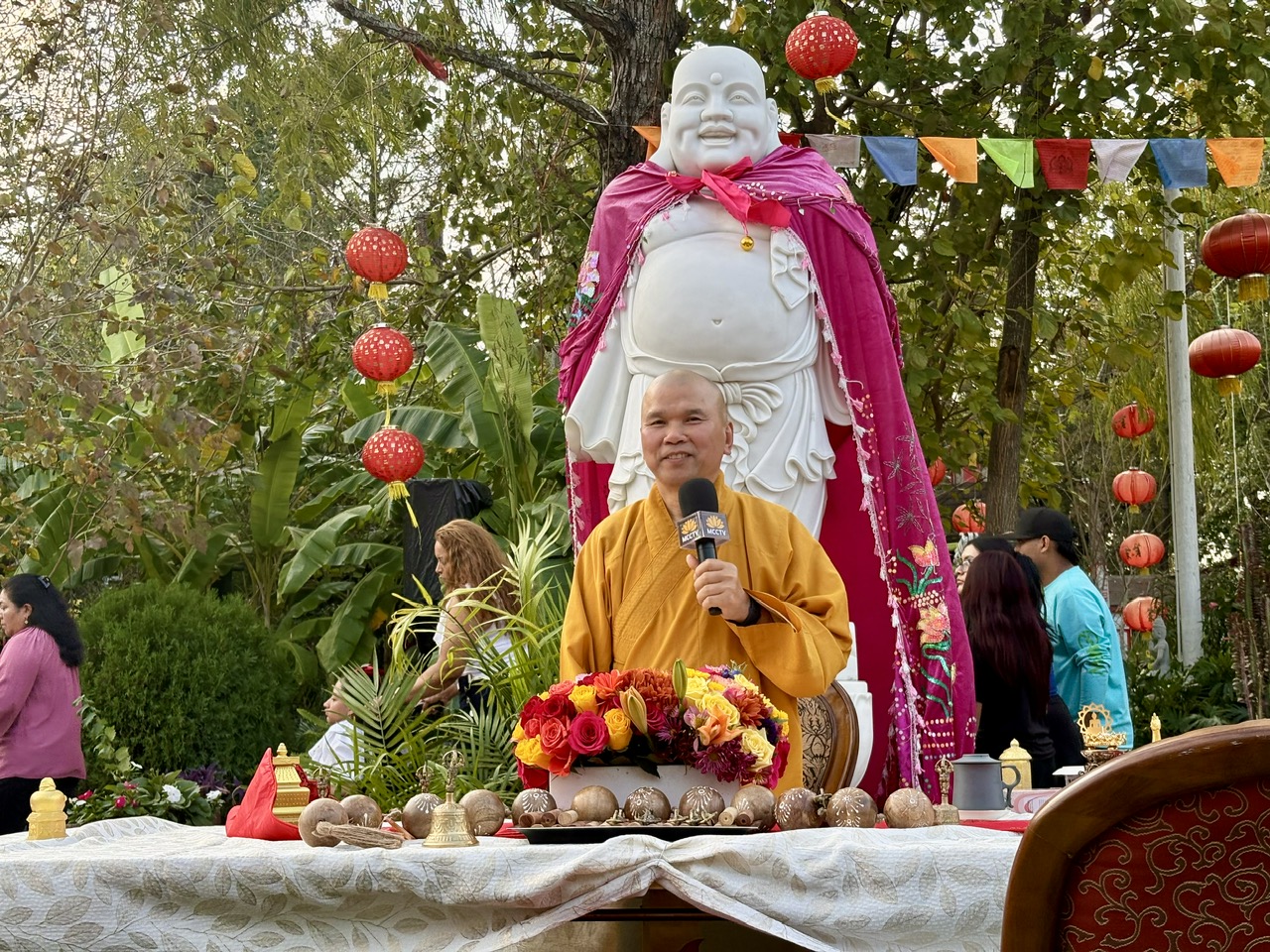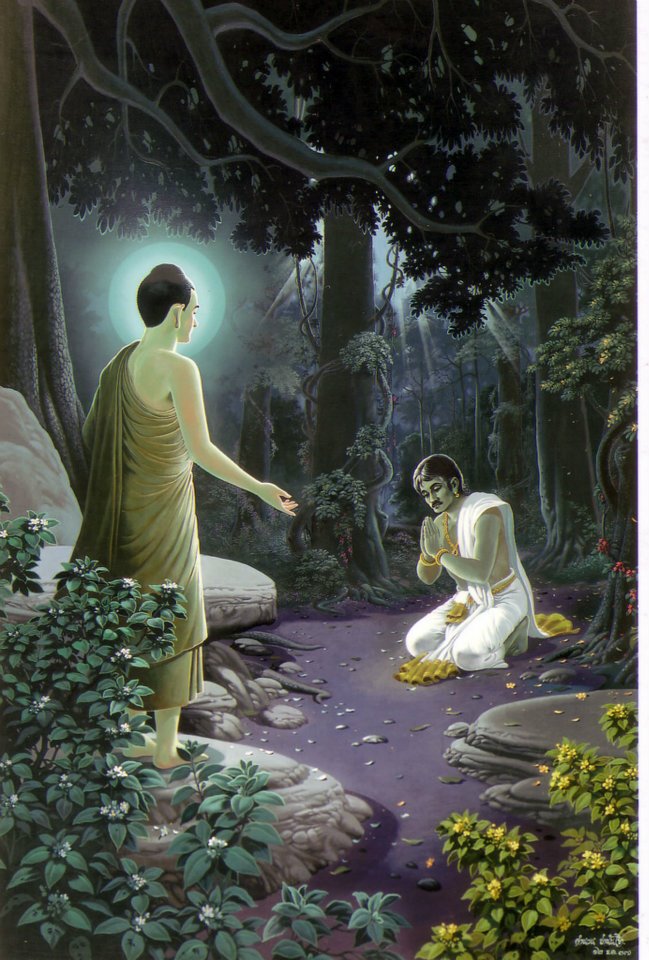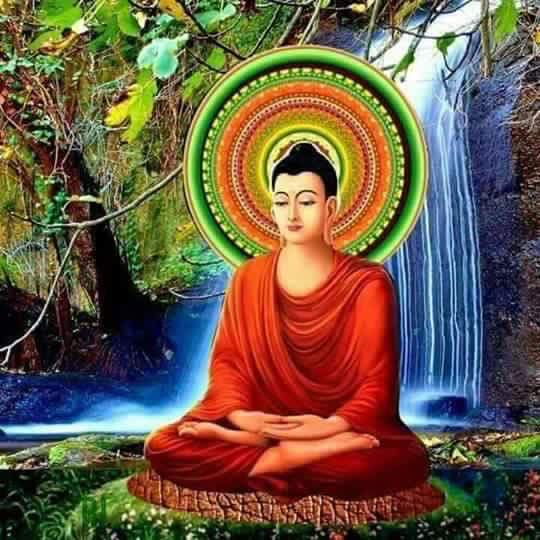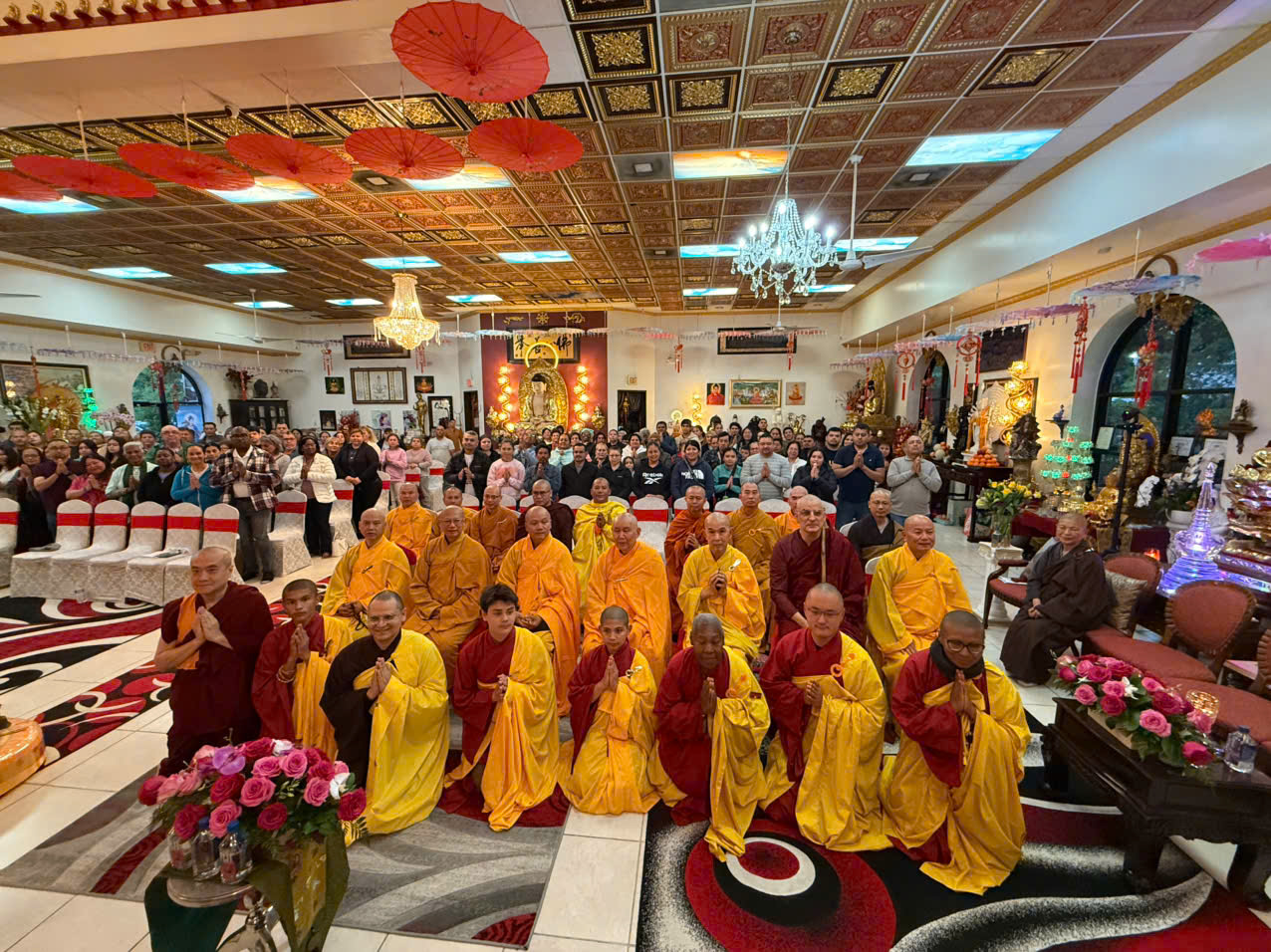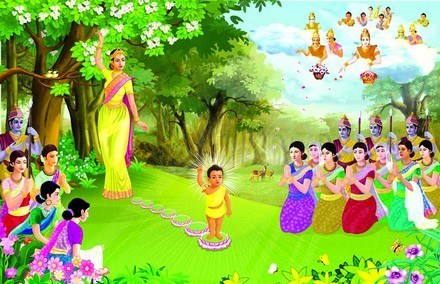
Aniccā vata saṅkhārā
Uppāda vaya dhamminō
Uuppajjitvā nirujjhanti
Tesaṃ vūpa samō sukhō
This verse was uttered by Sakka, the King of the Dēvas, just after the Parinibbāna (passing away) of the Buddha.
All things are impermanent
They arise and pass away
Having arisen they come to an end
Their coming to peace is bliss.
Death and Dying is a subject that evokes such deep and disturbing emotions that we usually try to live in denial of death. Yet we could die tomorrow, completely unprepared and helpless. The time of death is uncertain but the truth of death is not. All who are born will certainly die.
To be idle is a short road to death and to be diligent is a way of life; foolish people are idle, wise people are diligent.
All sentient beings, whether young or old, foolish or wise, are to go to the power of death, which is their destination.
Not in the sky, nor in the middle of the sea, nor in cave of a mountain can be found a place where a mortal cannot be overcome by death.
This body is worn out-with age, it is the seat of sickness, it is subject to decay. This putrid body disintegrates; life, indeed, ends in death.
***
Every human being falls under the same conditions. In the beginning we’re born, then in the middle we change, and in the end we fall apart and die. Death is something no one aspires to, and yet no one can escape it. We all have death at the end of our path.
Thinking about death gives rise both to benefits and to harm. For shortsighted people it’s harmful, because it makes them so depressed and discouraged that they don’t want to do any good in the world. In other words, all they see is the part that dies. They don’t see the part that doesn’t. Actually, there are two parts to every person: the part that can die and the part that doesn’t die. For example, the nature of the body is to keep changing until it falls apart. You can say that it dies, and you can say that it doesn’t. The word “dies” applies to the fact that the person disappears from his or her friends and relatives, but the elements of the body simply go back to their original form. The earth returns to being earth, the water to water, the fire to fire, and wind to wind. It’s like a cube of ice: if you keep the ice long enough, it’ll return to its original condition of being water. So you can say that the body dies, and you can say that it doesn’t die — simply that it doesn’t maintain the same form it had. According to the conventions of the world, this is called death, but wise people don’t see death as anything strange or out of the ordinary. The only question is whether death is accompanied by merit or not.
This brings us to the mind that used to stay with the body. This is the important part because it doesn’t die. It simply changes in line with the way good and evil arrange things for it. In other words, they arrange the level of the mind, the place where it takes rebirth. If you do good, you’ll have to go to a good destination. If you do evil, you’ll have to go to a bad destination. If you develop goodness to the ultimate degree so that you can let go of good and evil, the mind will become changeless, or what’s called deathless. But most of us can’t conceive of the truth. We tend to overlook it, so that we never reach the deathless. This is because of our own stupidity and lack of discernment. Our ignorance hides the truth from us.
The nature of the mind is very subtle. You can’t see it with your eyes. Some people say it doesn’t exist, which is why people who don’t consider things carefully say that death is followed by annihilation. We can make a comparison with the fire element in the air. The mind is like the fire element. The body is like a lit candle. When the candle runs out of its wax and wick, the fire has to go out. But when the fire goes out, that doesn’t mean that no fire is left in the world. We’re able to light another candle because of the fire element still there throughout the air. That’s the way it is with us: when the body falls apart, the mind gives rise to a new level of being for itself as long as it still has the fuel of ignorance, craving, and clinging.
This is why the Buddha taught his disciples not to be heedless, to develop as much merit and skillfulness as possible, for merit and skillfulness are what bring happiness both in this world and in the next. This is in line with the sayings,
sukho puññassa uccayo: the accumulation of merit brings well-being;
puññam sukham jivita-sankhamhi: merit brings well-being at the end of life; and
puññani para-lokasmim patittha honti paninam: merit is what establishes living beings in the next life.
The word merit here means the happiness or wellbeing that results from doing good. The good we can do comes in many forms, but in short there are two kinds:
(1) the merit that acts as a cause, i.e., the good we have to do; and
(2) the merit that acts as a result, i.e., the happiness coming from our goodness.
The merit that acts as a cause comes in three types: danamaya, the merit of being generous; silamaya, the merit of observing the precepts; and bhavanamaya, the merit of meditating. In the Abhidhamma these three types are divided into ten meritorious activities. Generosity is expanded to include pattidanamaya, the merit of dedicating merit to others, and pattanumodanamaya, the merit of appreciating other people’s merit. These three go together in that they all counteract jealousy and stinginess. The merit of observing the precepts is expanded to include apacayanamaya, the merit of showing respect to people worthy of respect, such as our elders and those to whom we should be grateful; veyyavaccamaya, the merit that comes in helping others in skillful activities, sharing your strength, wealth, and intelligence. These three all go together in that they’re related to interpersonal virtue. As for the merit of meditation, that’s expanded to include dhammassavanamaya, the merit of listening to the Dhamma; dhamma-desanamaya, the merit of teaching the Dhamma; and ditth’ujukamma, making one’s views straight. All four of these go together in that they are all sources of discernment.
These forms of merit can arise only when they are rooted in mental states free of greed, aversion, and delusion. As the Pali says, alobho dana-hetu, lack of greed is the basis for generosity; adoso sila-hetu, lack of aversion is the basis for virtue; and amoho bhavana-hetu, lack of delusion is the basis for developing the mind in meditation.
The merit you do gives you ease in body and mind. Whenever you think of the good you’ve done, it will always make you happy. It’s a noble treasure that follows you, just as your shadow follows you at all times. Even when you die, the merit you’ve done will follow you and arrange a good place for you to be reborn. This is called puññabhisankhara, merit as a fabricating factor.
When people are about to die, they are like travelers getting ready to abroad. Before they go, they have to prepare themselves. Only then will the trip be comfortable. For example, they have to put money in the bank,
For Example:- exchanging their Indian currency for foreign currency so they can use it when they’re abroad. If they simply take their Indian money along with them, they won’t be able to use it to buy anything. In the same way, when people leave this world at death, they can’t take along their wealth or possessions to use in the next world. Instead, while they’re still alive here, they have to deposit their money in the bank for Buddhists and exchange it for noble treasures, or inner wealth. What this means is that they make donations, for example, in homage to the Buddha, Dhamma, and Sangha. That way they’ll be able to use their wealth in the next world. If they have only counterfeit money — i.e., if they’ve done nothing but evil and unskillful things — they won’t be able to go to anywhere comfortable or prosperous, because they lack the funds needed to take themselves there. They won’t be able to return to the human world because they lack the funds — the human values — needed to take themselves there. So they’ll have to turn into hungry ghosts, wandering around, losing their way, haunting people and possessing them, suffering all kinds of hardships. For this reason, being generous is like depositing your money in a bank so that you’ll be able to use it when you go abroad. That’s the first step.
The second step is to get a passport as proof of your nationality. What this means is that you establish yourself in the virtues of the Buddha, Dhamma, and Sangha, observing the precepts to get rid of the gross defilements in your words and deeds, as proof of your status as a member of the Buddha’s following.
The third step is to learn foreign languages. In other words, you have to practice tranquillity meditation and insight meditation so as to get rid of the intermediate and refined defilements — the Hindrances — in the heart, straightening out the heart so that you can give rise to three forms of knowledge:
pubbenivasanussati-ñana, the ability to remember previous lifetimes;
cutupapata-ñana, knowledge of the death and rebirth of living beings, seeing why they are born on low levels or high, with pain or pleasure; and
asavakkhaya-ñana, the knowledge enabling you to rid the heart of its fermentations.
These three forms of knowledge count as the foreign languages you’ll need for your journey. Your trip will be easy and fun, dazzling bright, with plenty of treasures along the way. You’ll see sights you’ve never seen before, such as the heavens and brahma worlds. This is what it means to be “well-gone.” Even as you stay here, you’ll stay well. If you want to come back, you’ll be able to. If you don’t, you can continue your studies and go all the way to nibbana, released from having to swim around in the cycle of death and rebirth. You’ll reach security, joyful and free from danger of every sort.
The practice of generosity, virtue, and meditation thus results in three types of treasure — the treasure of the human state, the treasure of the heavenly state, and the treasure of nibbana — in line with your abilities to do the practice. People who are complete in all three of these forms of skillfulness are said to go well, come well, and stay well, because their thoughts, words, and deeds have been trained well. Wherever they go they are free from animosity and danger, for they are loved and respected by all beings, human and divine.
So we should each look at our condition, realizing that we’re on a journey leading day by day, minute by minute, to death. There’s no escaping this. For this reason we should develop the three forms of skillfulness and merit — generosity, virtue, and meditation — so that the happiness and security resulting from goodness will arise for us, taking us beyond death, in line with our abilities.
***
So, we must remember this..
All sentient beings, whether young or old, foolish or wise, are to go to the power of death, which is their destination.
When, how, why, where…… Nobody knows. But one thing it’s sure that we will die one day. We may have participated many funerals. We may have seen and heard so many deaths. Even we may have had that near experience in our lifetime. But….lack of wisdom, we just shed tears for the departed person and forgot that we too will follow up them soon or later.
By thinking of death wisely, wise people will never hate others or rise ill-will towards others. They won’t have time for ego. They will cultivate love, compassion, kindness, sympathy, equanimity…… They won’t find any time for meaningless arguments and conflicts. They won’t be shaken by any sadness, defame, complaints, loss because all those things won’t last forever. Whatever comes, they accept. Whatever goes away, they accept. But one thing they will always follow is….. mindfulness with a compassionate heart.
As an example, some of the devoted country of Buddhist followers considered to be one of the happiest countries in the world, because they contemplate on death, impermanence, nonself as Buddha’s teachings.
Even people attempted so many times to murder the Buddha. There were countless times when Buddha had been shamed, abused and accused but he wasn’t shaken. Because his mind was pure and serene. Nothing worldly things can touch his mind. He had such enlightened disciples hundreds of thousands in numbers. All of them followed Buddha’s path.
He also had lay disciples with family members lived with Dhamma and practiced Dhamma. The myth is wrong when ignorant people say Buddha’s teaching was only for monastics. In fact, he and his disciples mostly taught to laities millions in numbers who were benefitted and liberated.
One who genuinely practices Dhamma, his mind becomes mindful, peaceful, compassionate, hateless, angerless, tolerant, kind, immovable like mountain during worldly incidents, and of course follow the path that noble ones followed in the past.
.
May every one be safe from inner and outer dangers and free from sufferings.
May Venerable Bimalankur Mahatheto attain the ultimate bliss of Nibbana.
Sadhu sadhu sadhu




